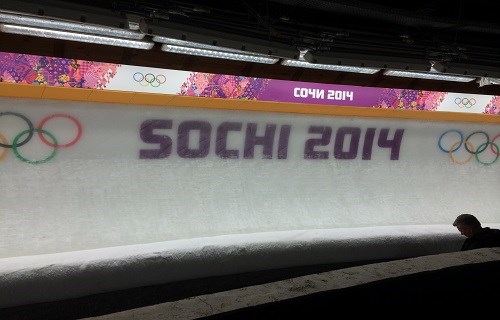The Russian doping affair – as told by Russian language media
The decision by to ban Russia from participation in the 2018 Winter Games and the 2016 Paralympics is generally described in Russian media as an “international conspiracy” or a “trumped-up story to punish Russia”, according to a recent report published by the Nordic Journalist Centre (NJC).
The report analyses the events that filled Russian written media in 2016 – the year of the Olympic Games in Rio de Janeiro, and the World Anti-Doping Association (WADA) commissioned McLaren report confirming manipulation of the doping control process in relation to the Sochi Winter Olympic in 2014.
The report does not aim to take sides on the issue of whether there are, or have been, state sponsored doping programs in Russia. Instead, it aims to establish a base for discussion and investigate whether there is a “battle of truths” – an information war – between media outlets targeted at native Russian speakers.
The authors of the report study the content in Russian language media in various countries and focus on the content, methods used to describe the doping story, the language, and the general tone of articles written on the subject.
“‘Truth vs Truth’ is a timely report that can serve as a guide to understanding the reactions that are likely to follow in the coming days, weeks and months in Russian media following IOC’s decision to ban the Russian flag from the 2018 Winter Olympics. This applies not just to the Olympic Winter Games, but also to the World Cup in football, which takes place in Russia in the summer of 2018,” writes Malcolm Dixelius, co-author of the report.
Patriotic media outlets
The researchers classify articles published by Russian language media in the summer and early fall of 2016 as ‘patriotic’, ‘independent’, or ‘factual’.
Articles classified as ‘patriotic’ are opinionated and biased towards the official Russian position. ‘Independent’ articles give different views on the subject or provide a critical analysis of the official Russian position. Finally, ‘factual’ articles concentrate on information without emphasis on opinions and deeper analysis.
The analysis of 24 news articles published by media outlets in Northwest Russia reveal that patriotic-ranked articles make up the largest group of analysed material (16 out of 24) – five rank as factual, and only three news articles are ranked as independent.
The patriotic-ranked articles are “characterized by a clear position stated with self-confidence by the author, categorical opinions, an expressive (sometimes aggressive) tone, connotative and insulting words and expressions (in Russian journalistic jargon known as ‘Komsomalskaya pravda style’),” the reports says.
This type of articles typically conclude that no conclusive evidence exits that Russian athletes doped, that sport today is impossible without doping and that the doping issue is a part of a Western war against Russia. The articles in this category use connotative words and expressions eg. “This is extreme inhumanity, impudence, cruelty, cynicism. This is the Inquisition, to deny the disabled their little joy – this is a violation of the Olympic Charter,” one example reads.
Articles on the doping issue ranked as ‘factual’ tend to have different opinions included without giving preference to any of them, the report says. Independent-ranked articles, of which the report only includes three, "avoid biased statements and use very few connotative words and expressions”, the report explains. “The narrative is reasoning with a factual approach.”
The analysis of news articles published by Russian language media in Baltic states draws a similar picture, yet slightly less biased towards the official Russian position. More than 50 % of articles rank as patriotic (12 out of 23). Four articles rank as factual and seven articles are ranked as independent.
Media policy dependent on government
Based on the results of the analysis, the authors conclude that Russian speaking communities inside Russia and in the countries with substantial Russian minorities, are subject to a media policy that is significantly dependent on the will of the federal government in Russia.
“We cannot tell Russian-speaking journalists how they should work, we cannot tell them how their media should be managed, but we can have a running discussion with them. This is probably more important at this time than it has been before. We can share experiences, we can always learn something from each other, and we should never forget that freedom of speech is not a given, it has to be fought for and protected every day,” the authors of the report conclude.
More information
Truth vs Truth – How Russian media handle the doping affair







It would be interesting to compare the domestic news outlets and their reporting of the Russian doping scandal with Canadian news outlets and the fallout from Summer Olympics doping scandal of 1988 - the Dubin Commission findings. Media has definitely changed, and the two events are not on the same scale, but if you are measuring a level of journalistic or national cognitive dissonance, it could offer an interesting comparison.